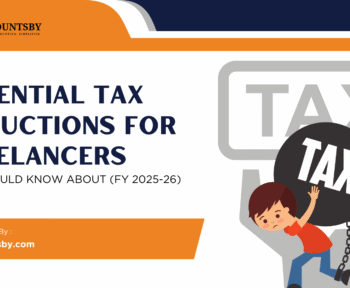Freelancing offers the freedom to choose your projects, set your schedule, and work from virtually anywhere. But with this flexibility comes added responsibility—especially when it comes to managing taxes. Understanding tax deductions for freelancers is essential if you want to keep more of your earnings and reduce what you owe during tax season.
This guide will walk you through some commonly overlooked deductions and help you take control of your freelance finances.
Commonly Overlooked Tax Deductions for Freelancers
Many freelancers miss out on tax savings simply because they’re unaware of what qualifies as a deduction. Here are some expenses you should be tracking:
- Software subscriptions: Tools used for design, writing, accounting, or project management can be fully deductible.
- Client meals: Meetings over lunch or coffee with clients may qualify for partial deductions.
- Education and training: Courses, webinars, and workshops that enhance your skills are usually deductible.
- Professional memberships: Fees paid to join industry associations can reduce your taxable income.
- Marketing expenses: Costs like website hosting, digital ads, and branding materials are all valid deductions.
Also Read: Income Tax Login: How to Access the Income Tax Portal, E-filing, and Return Filing
Home Office Expenses

If you work from home, you may qualify for the home office deduction. Here’s how it works:
- Calculate the square footage of your workspace and compare it to your total home space.
- Deduct a percentage of rent or mortgage interest, utilities, and property taxes.
- Include business-related purchases like desks, chairs, shelves, computers, and printers.
- Keep receipts and document how each item supports your freelance work.
Health Insurance Premiums

Freelancers can deduct the cost of health insurance premiums, which can lead to major tax savings:
- Deduct premiums paid for yourself, your spouse, and dependents.
- Maintain records of all payments made throughout the year.
- Choose a plan that not only provides coverage but also offers long-term tax benefits.
Travel and Business Expenses

Freelance travel often comes with eligible deductions if it’s related to your work:
- Save receipts for airfare, hotels, meals, and transportation.
- Log business miles if you drive to client meetings or events.
- Use apps or tools to track your travel expenses throughout the year.
Retirement Contributions

Freelancers can take advantage of several retirement plans that offer tax benefits:
- Solo 401(k): Allows contributions as both employer and employee, increasing your annual limits.
- SEP IRA: Easy to set up and offers higher contribution limits than traditional IRAs.
- HSA (Health Savings Account): Offers triple tax benefits when paired with high-deductible health plans.
Planning ahead for retirement not only secures your future but also helps lower your current tax bill.
Organizing Your Finances for Tax Season
Tax time doesn’t have to be stressful. Here’s how to stay organized:
- Use dedicated folders—physical or digital—for storing financial records.
- Track income and expenses with accounting software like QuickBooks or FreshBooks.
- Review finances monthly to avoid last-minute surprises.
- Keep receipts organized, either in a binder or using a receipt-scanning app.
- Update spreadsheets regularly to ensure accurate, easy filing.
Conclusion
Freelancing gives you control over your work—but it also means you’re responsible for managing taxes. Understanding and using tax deductions for freelancers can make a huge difference in your bottom line.
From home office expenses and health insurance to travel costs and retirement contributions, every deduction counts. Stay organized, stay informed, and you’ll be well-prepared for tax season and beyond.




